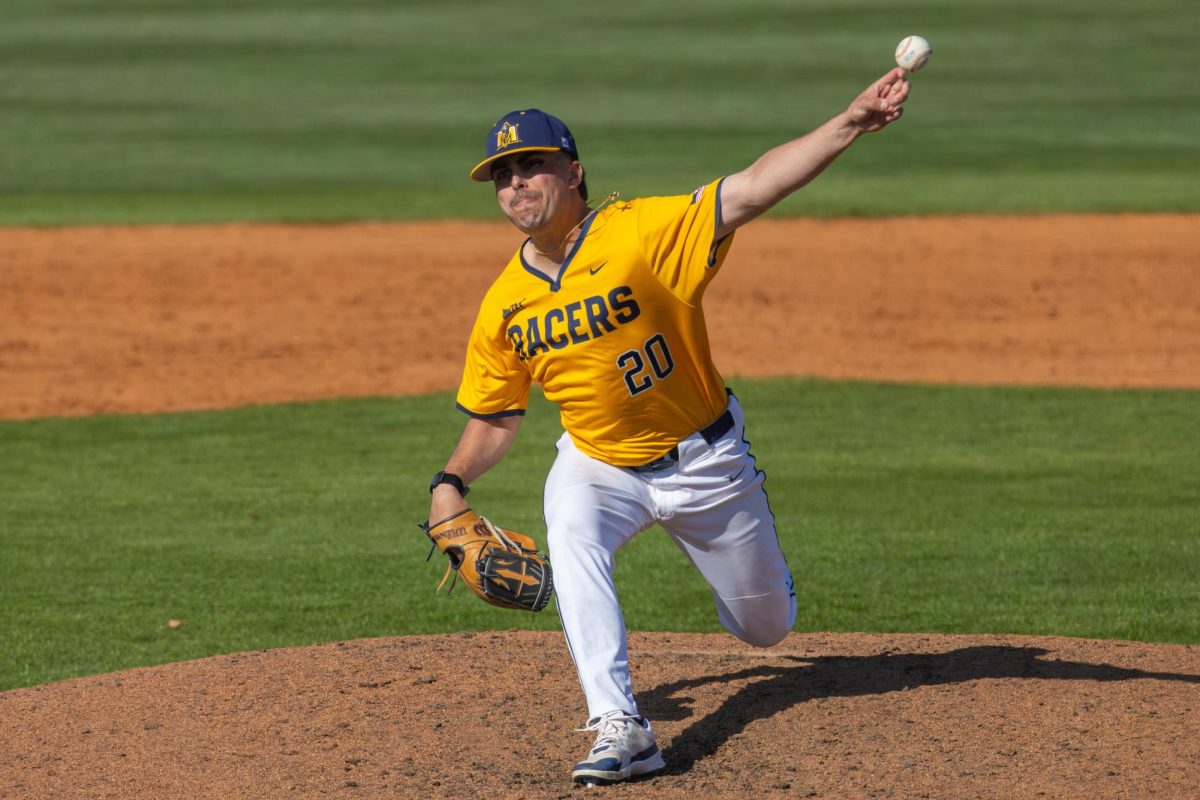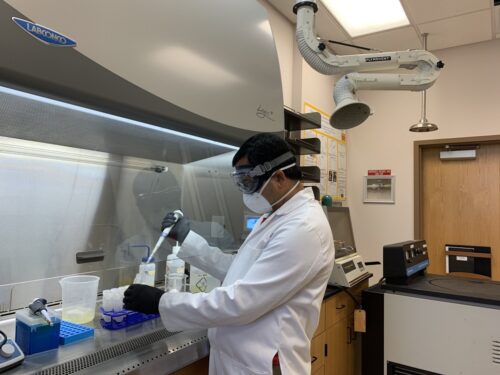Levi Brandenburg
Contributing Writer
lbrandenburg@murraystate.edu
A wastewater testing project for Mayfield, Kentucky, is helping to track and identify potential COVID-19 outbreaks before the infected even begin showing symptoms.
The project started in November and is a partnership between the Graves County Health Department, Murray State, Mayfield Electric and Water Systems, the Foundation for a Healthy Kentucky and the University of Louisville Co-Immunity Project.
The process begins in Mayfield, where the wastewater samples are collected by Mayfield Electric and Water Systems at their wastewater treatment facilities. From there, it is sent to Bikram Subedi, assistant professor of analytical chemistry, and Gary Zeruth, associate professor of cellular and molecular biology, for testing.
“Dr. Subedi receives samples of wastewater from Mayfield Water and Electric that he processes to extract RNA,” Zeruth said. “I receive the extracted RNA from Dr. Subedi and quantify how many SARS-CoV-2 viral particles are present in the samples.”
Zeruth said the genetic material of the virus is an indicator of an early stage viral infection of COVID-19. It is able to detect outbreaks days before the first symptoms appear or even if they don’t appear at all.
According to a press release by Murray State, the wastewater analysis is beneficial for testing even if a person is asymptomatic. Results from this testing can be used to inform local officials about potential virus outbreaks.
“Our preliminary findings suggest that spikes in viral levels detected in the wastewater samples precede increases in cases of COVID-19 as detected by clinical testing by five to seven days and might serve as a predictor of community outbreaks,” Zeruth said. “This information can better inform local administrators to enact policies that might help to slow the spread of the virus.”
Zeruth said another benefit of this detection method is that it is fairly comprehensive and does not rely on individuals submitting to testing.
“SARS CoV-2, the virus that causes COVID-19, has been shown to be shed into the wastewater from infected persons regardless of whether they exhibit symptoms,” Subedi said in the press release. “Detection and measurement of SARS-CoV-2 RNA in wastewater therefore serves as a comprehensive, non-invasive, near real-time and cost-effective approach to monitoring COVID-19 infection within communities that is not dependent on individuals submitting to testing.”
This process of tracking COVID-19 has been ongoing across the country for some time, with the National Wastewater Surveillance System having been used historically to track outbreaks of large-scale disease outbreaks such as polio, according to the Center for Disease Control and Prevention.
However, according to the press release, this wastewater research has never been used in western Kentucky, only having a prevalence in northern Kentucky and Louisville.
This ongoing partnership with the University is supplying more lab facilities for testing, as well as opportunities for the Murray State community to assist western Kentucky in combating COVID-19.





























































































